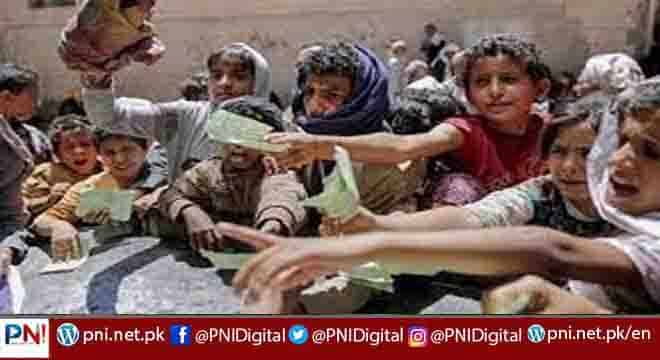UNITED NATIONS ñ March 15 (ONLINE) Yemenís already dire hunger crisis is teetering on the edge of outright catastrophe, UN agency chiefs said Monday, as new data analysis from the war-ravaged country indicated potentially record food insecurity.
Today, more than 17.4 million Yemenis are food insecure; an additional 1.6 million “are expected to fall into emergency levels of hunger in coming months, taking the total of those with emergency needs, to 7.3 million by the end of the year.
Of extreme concern to humanitarians is the likelihood that the number of people experiencing catastrophicñ or famine-like -levels of hunger, will increase five-fold,, from 31,000 now, to 161,000, by 31 December.
These harrowing figures confirm that we are on a countdown to catastrophe in Yemen and we are almost out of time to avoid it, said World Food Programme (WFP) Executive Director, David Beasley.
Unless we receive substantial new funding immediately, mass starvation and famine will follow. But if we act now, there is still a chance to avert imminent disaster and save millions.
The development comes as heavy fighting was reported over the weekend between Yemeni Government troops and Ansar Allah separatist’s also known as Houthi forces ñ around the oil-rich northern city of Marib, which is still under government control, killing and wounding dozens of combatants.
The fighting took place as UN Special Envoy for Yemen, Hans Grundberg, ended his first week of consultations with key Yemeni parties in a push for a peaceful and sustainable future for the country which has been locked in escalating conflict since 2015.
Ahead of a High-Level Pledging Event on the Humanitarian Crisis in Yemen this Wednesday, the UNís top aid official in Yemen, David Gressly, said in a tweet that funding was ‚Äúurgently needed to sustain food and nutrition support, clean water, basic health care and protection. Parties to the conflict can reduce aid reliance by reducing restrictions on the economy.
The warning from the UN Childrens Fund (UNICEF), WFP and the Food and Agriculture Organization (FAO), followed surge violence across Yemen, which left at least 47 children killed or maimed in January and February.
Lacking the basics after seven years of fighting, “many households in Yemen are deprived of basic food need said Qu Dongyu, Director-General of the Food and Agriculture Organization (FAO).
In a search for solutions, the FAO chief added that the agency was working “directly with farmers on the ground to foster their self-reliance through a combination of emergency and longer-term livelihood support, to build up their resilience, support local agrifood production, and offset people’s reliance on imports.
Highlighting the long-lasting, negative impact on children, UNICEF Executive Director Catherine Russell warned that more and more children were going to bed hungry in Yemen.
This puts them at increased risk of physical and cognitive impairment, and even death,Ms. Russell added.
The plight of children in Yemen can no longer be overlooked. Lives are at stake.
Follow the PNI Facebook page for the latest news and updates.









